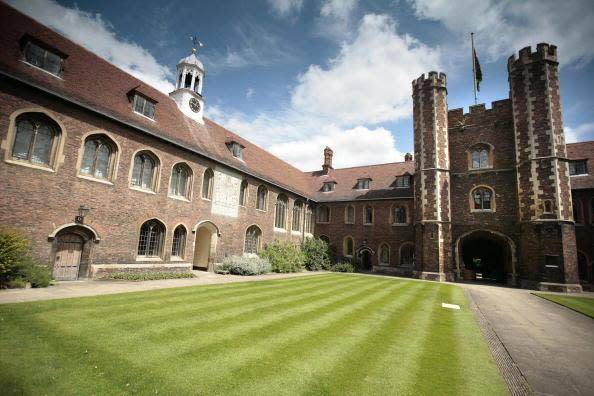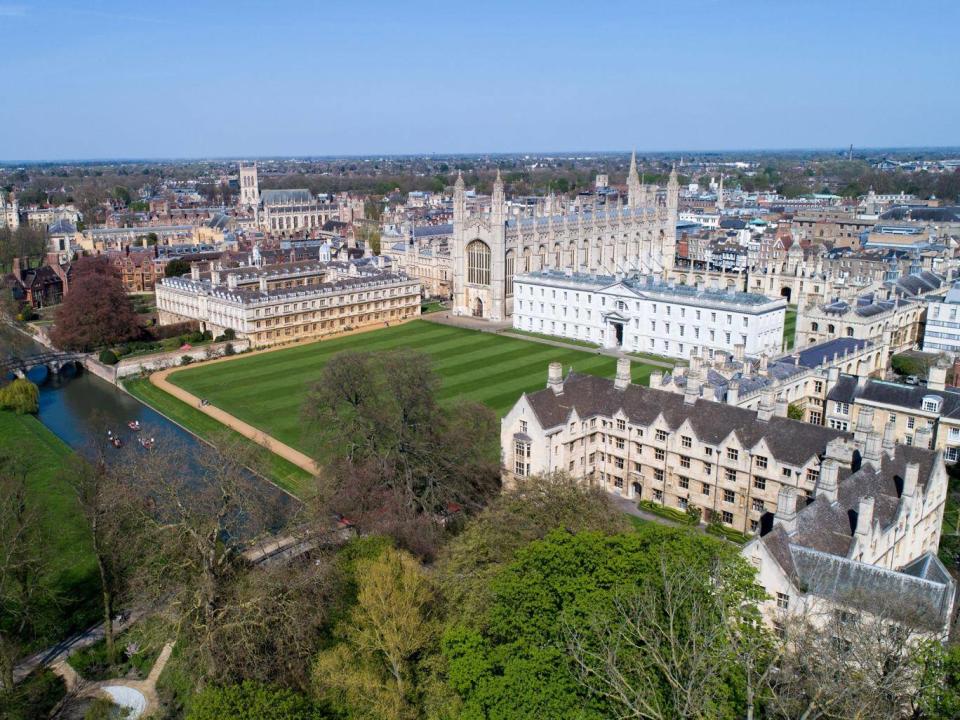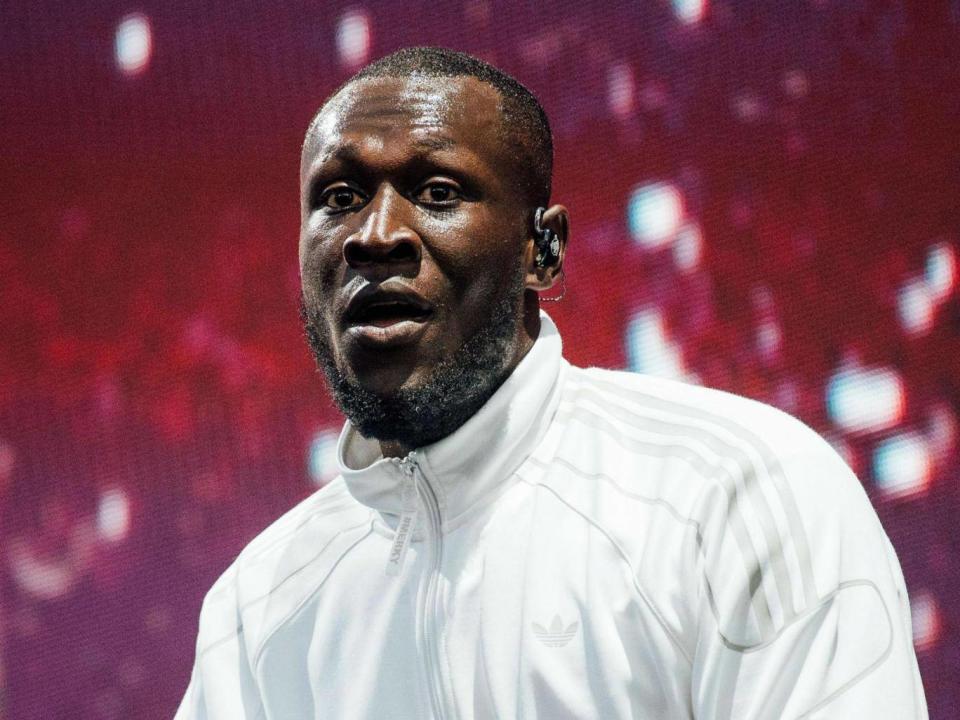Is it time for a radical university challenge?

Cara was 34 when she arrived at the entrance to the English department at the University of Bristol, to be interviewed for a foundation year. She had been out of education for more than a decade and had no formal qualifications. The department is located in a large 19th century villa on a road in Clifton, the wealthiest suburb of the city.
It was an unseasonably hot day in March, and I was interviewing in a colleague’s office at the top of the building. It seemed to be collecting all of the heat from elsewhere in the building, and even with the window open, the air felt stagnant.
I knew from Cara’s application form that she hoped to progress from the foundation year to a degree in English, so I mentioned that where we were now would be her home department. I don’t think it helped.
The office was the archetype of a don’s lair. Every inch of the desk piled high with papers and books, the floor doubling as further desk space, the walls hung with reproductions of etchings. For some, that can seem enticing – finally entering the sort of space you’ve imagined and yearned for, but from which you’ve always been excluded.
Not for Cara. For her, the setting added to a sense that this was all too much; that the distance she had to travel from where she was now to where this office suggested was simply too far.
The start of the interview proceeded as if she had made up her mind already that she had made a mistake. She seemed to want the experience over as quickly as possible. Her answers were brief, and when I asked about her interest in literature, there was no flicker of enthusiasm, no suggestion that it would excite her to study poetry or plays or prose for three years.
Yet all of this was at odds with the written work she had completed as part of her application – a treatment of a Seamus Heaney poem – and her personal statement, which was articulate and committed. I half-wondered whether a friend or a relative had written them.

I was beginning to share Cara’s hope that the interview would end soon when I remembered a striking aspect of the application: Cara was a performance poet; she wrote and performed spoken word pieces. So I asked her about that. Her face changed completely.
She started telling me where she’d performed most recently, and where she was performing next. It was all just factual information, but at least she was talking. Then she stopped. She paused, clearly weighing in her mind whether or not to say something. After a moment, she asked: “Do you want to hear one?” Of course, I did.
What followed was extraordinary. For five minutes, she performed entirely from memory a complex, brilliant piece of poetry, laying the emphasis with such precision on specific syllables, sometimes to create the pulse of the verse, sometimes to jolt the listener into paying attention to an unusual choice of words.
The poorest sectors of the population, indigenous groups and ethnic minorities participate at much lower rates than their peers
It was like she was lost in a trance as she did it, her concentration was so total. She finished, I applauded, and we started to talk about the process of writing it. She explained how she’d chosen the topic, the rhythm, the words; she talked about editing it, practising it and finally performing it. The transformation was total.
Each September, as new students start at university, I think about that experience and I wonder what would have happened had we not hit on the topic of Cara’s spoken-word activities. I also think about the number of people who don’t go on to study at university, because they don’t have the right qualifications or because they simply assume it isn’t for them.
On the foundation year, we take students without any qualifications at all. How many others are there out there with just as much to offer as Cara, who do not even make it as far as an interview?
Richard Pettigrew
***
It is estimated that there are now more than 150 million students in higher education across 17,000 institutions around the world. Yet across the globe, there are large swathes of the population who feel, like Cara did, that universities are not for them.
The poorest sectors of the population, indigenous groups and ethnic minorities participate at much lower rates than their peers. One in six Africans and Coloureds in South Africa attends higher education, compared with half of Whites (the terms given are those used in Unesco’s classification).
Only 1 per cent of the indigenous population in Mexico goes to university. In the UK, nearly three quarters of the richest 25- to 29-year-olds had completed four years of tertiary education in 2008-14, but only a third of the poorest.
While access to higher education has improved for women, gender equality in the system remains elusive; the proportion of women continues to decline at each stage of the system up to professorial level.
Around the world, about the same number of women study for an undergraduate degree as men, although women are a smaller proportion (44 per cent) of those studying at doctorate level, according to a recent report by Unesco. Meanwhile, in low income countries, only one third of 3.3 million undergraduates are women.
The UK system also remains remarkably unresponsive to the shape of individual lives and the ways that circumstances may interrupt someone’s education. Cara was returning to education in her 30s. But the routes to do so are increasingly limited.
There has been a 61 per cent drop in the number of part-time students in England since 2010, with women from less privileged backgrounds among those most affected. There is also substantial evidence that students from groups that have been routinely excluded from universities continue to feel like outsiders within some institutions.
In the UK, retention rates are lower for all ethnic groups (except students of Chinese and Indian ethnicity) compared with their White peers, and degree outcomes are dramatically different for Black students regardless of entry requirements for their degrees and of the qualifications they had gained beforehand.
These patterns of participation have implications not only for the individuals and communities concerned, but also for the kinds of knowledge and experience that universities miss out on or mishear.
Tom Sperlinger
***
The focus of public debates about higher education in the UK tend to be on a particular set of issues, including whether universities are too commercialised or too remote from the rest of society, and whether student fees have been a success or should be abolished.
Within universities themselves, many debates position the 1970s as a sort of golden era – when grants were available and there were no fees, access was widening through new universities, such as Sussex and East Anglia and the Open University, and government intervention in the system remained limited.
Today, universities are facing a crisis of public confidence both as institutions and as symbols of expertise. We need a much more radical rethink of the form and structure of the higher education system if this crisis is to be addressed.
Recent political events in the UK have powerfully demonstrated how divisive different worlds of experience can prove to be
In particular, we need a shift away from the norm of full-time study over three years at the age of 18. This model emerged in an era when the student population was dramatically smaller, and the nature of professional life was very different. A critical debate about whether it is still fit for purpose is long overdue.
Indeed, the decline in part-time study comes at a time when a fourth industrial revolution will create unprecedented demand on those already in work to retrain and acquire new skills. In this context of rapid technological and economic change, it makes little sense to concentrate all of an individual’s higher education into a brief period at the beginning of their lives.
A report by the World Economic Forum in 2017 notes that: “Over one in four adults surveyed in the OECD reported a mismatch between their current skills and the qualifications required for their jobs. Furthermore, approximately 35 per cent of the skills demanded for jobs across industries will change by 2020.”
The pace of change is likely to accelerate and to create extreme inequality between those with high-skilled and high-paid jobs and those in low-skilled professions. In other words, those without access to further and higher education will be left further behind economically.
What is more, those workers who have already exhausted their entitlement to three years of full-time study will be unable to retrain as and when their current skills are outpaced by technological change.

What would a different model of universities look like and who would benefit?
In our book, Who are universities for?, we put forward 33 new ideas for how universities in the UK might be organised. The changes that we propose would allow lifelong access to higher education. They would change the way that universities are funded, moving from individually accrued debt to a modest participation tax.
They would – we hope – make higher education accessible to a much wider range of people, and would break down some of the socioeconomic and cultural barriers to access. Doing all of this would, we argue, have a profound impact on the nature of the university itself, allowing a much more productive exchange between expertise and experience than is currently possible.
It would change not only who universities are for, but also what they are for.
Here are 13 of our proposals:
1) A modular structure would replace degrees. The predominant existing degree structure would be abolished, with students instead taking modules and accumulating credits for each module towards a range of possible outcomes.
2) There would be no point of graduation. The new, modular structure would have radical implications for admissions, but would also mean abolishing the formal point of graduation. Instead, there would be an expectation that adults would continue to study across the course of their lives, if they so wished.
3) There would be full participation. There would be a goal of full participation in further and higher education among those over 18, but this would come in a variety of modes and forms. The distinction between HE and FE would ultimately dissolve.
4) Part-time study would be the norm. Most students would work part-time and school-leavers would be encouraged to consider working full-time between school and university or to work alongside their studies.

5) Access to initial study would be completely open. All those physically present in a country, including refugees and asylum seekers, would be able to access up to 60 credits of study (half of a first year and normally equivalent to about three modules) in further/higher education, without any prior qualifications being needed, and for free.
6) Access to specialist routes beyond initial study would be fairer. There would continue to be a limited number of specialist routes through subsequent study, for example where a particular route might be required for a profession. Entry to these routes would be on the basis of two of the following conditions: achievement in the prior 60 credits; achievement in a prior course of study; interview and/or written work set at the point of admission.
7) Admissions would treat state education as the norm. Where achievement in prior study is considered at the point of admission, there would be a standard offer – for example, for the 93 per cent of students attending state schools, or for those taking an access course – and then a higher offer for students attending a private school.
8) Initial study would be free for all. The first 60 credits of study would be free as well as open access. This entitlement would be for 60 successful credits and all learners would also be entitled to up to 40 unsuccessful credits, to allow for modules where an individual might (for example) opt not to take the assessment or fail on the first attempt. We estimate that this would cost approximately £5bn.
9) University teaching would be funded by a participatory education tax. The fees and loans system would be replaced with an all-age graduate tax, called a participatory education tax (PET). It would be paid by all past graduates and all those who, in future, accumulated more than 60 credits.
An individual would pay a slightly higher rate of tax after accumulating 240 credits of study (equivalent to two years of study). We estimate this would raise £2.6bn based on the current number of graduates in the UK, considerably more than the £1.8bn raised during 2015-16 by repayments through the student loans system. We estimate the PET tax would raise £18.4bn per year on the increased rates of participation we propose.
10) Half of PET revenue would be allocated centrally for strategic purposes. Of the funding provided via the PET tax, 50 per cent would be distributed through a national system, which would allow, for example, for the identification of strategic priorities across the sector, including in response to global challenges and research priorities emerging internationally.
We assume here that this would continue to be on a devolved basis, with England, Northern Ireland, Scotland and Wales each maintaining a separate system for higher education (and, indeed, choosing whether or not to move to this model of funding).
11) Half of the PET revenue would be distributed in each region through a system of participatory budgeting. The other 50 per cent of funding raised would be distributed through an annual participatory budgeting process in each region, furthering the process of devolution.
This participatory budgeting process – modelled on examples such as the longstanding arrangements for civic participatory budgeting in Porto Alegre in Brazil – would begin with a series of public meetings or plenaries, in which the previous year would be reviewed and critiqued.
This would also allow for a wide range of opinions to be heard on what the priorities should be, in teaching and research, over the coming year.
12) Dedicated student housing would be integrated with other housing models. There would be options to move away from home for your studies, especially after 60 credits.
However, the model in which students live in segregated housing would be diluted by an emphasis on part-time study, with much more shared student and social housing and with opportunities for students to undertake paid or voluntary work within their residences, for example in shared accommodation with vulnerable young people or retirement housing.
This would build on imaginative models that are developing throughout the UK designed to create shared intergenerational living spaces.
Education has a vital democratic function, not least in providing spaces where individuals from dramatically different backgrounds can meet
13) Childcare would be central to all universities. The poet and critic Adrienne Rich’s proposals for childcare would be at the centre of all institutions: “Childcare would be available for all students, staff, and faculty, with additional places for community children, at a subsidised rate that would make it effectively open to all. This is an absolute necessary, though not sufficient, condition for the kinds of change we envision. Childcare would be of the highest quality.”
Adrienne Rich thought that real social change is likely to come from outside universities and that it is “probable” that “the unrecognised, unofficial university-without-walls ... will prove a far more important agent in reshaping the foundations on which human life is now organised”. Cara’s poetry is a reminder of just how much creativity and invention happens outside universities.
Yet Rich herself conceded that: “The orthodox university is still a vital spot ... if only because it is a place where people can find each other and begin to hear each other. (It is also a source of certain kinds of power)”.
Too often, widening access to universities is presented as an altruistic activity that universities do for philanthropic reasons. This produces a system in which lucky individuals are picked out of their own context and must conform to a set of institutional norms that are alien to them (often with painful results).
Once a mass higher education system is created, as it has been in the UK over the past 20 years, it can also lead to a deep schism in society between those inside and outside the system.
EP Thompson, himself an adult educator, once wrote: “Democracy will realise itself – if it does – in our whole society and our whole culture: and, for this to happen, the universities need the abrasion of different worlds of experience, in which ideas are brought to the test of life.”
Recent political events in the UK have powerfully demonstrated how divisive different worlds of experience can prove to be. The emerging political landscape exposed by the Brexit vote in 2016 and the 2017 general election is complex. Yet, in both votes, two sides emerged that were incomprehensible to each other and they split, above all, along levels of education.

David Runciman wrote of the Brexit vote: “Voters with postgraduate qualifications split 75 per cent to 25 per cent in favour of Remain. Meanwhile, among those who left school without any qualifications, the vote was almost exactly reversed: 73 per cent to 27 per cent for Leave.”
He concluded: “Class still matters. Age still matters. But education appears to matter more.” The figures are similarly instructive for the US presidential election in 2016.
This is not to imply that increased participation in higher education would help people to vote the “right” way. Rather, we are witnessing a crisis in what forms of knowledge we hold in common as a society, with too little dialogue between expertise and experience.
Education has a vital democratic function, not least in providing spaces where individuals from dramatically different backgrounds can meet – as in Cara’s interview – at times, on equal terms.
This is particularly important in universities, where the knowledge that is created has a key role in determining the future of wider society; those with a stake in its creation thus shape the ideas and priorities that result.
At a time of rising inequalities and growing social divisions, universities remain vital if – as a society – we are to begin to hear one another again.
This article is adapted from ‘Who Are Universities For? Re-making Higher Education’ by Tom Sperlinger, Josie McLellan and Richard Pettigrew, which is published by Bristol University Press

 Yahoo News
Yahoo News 
